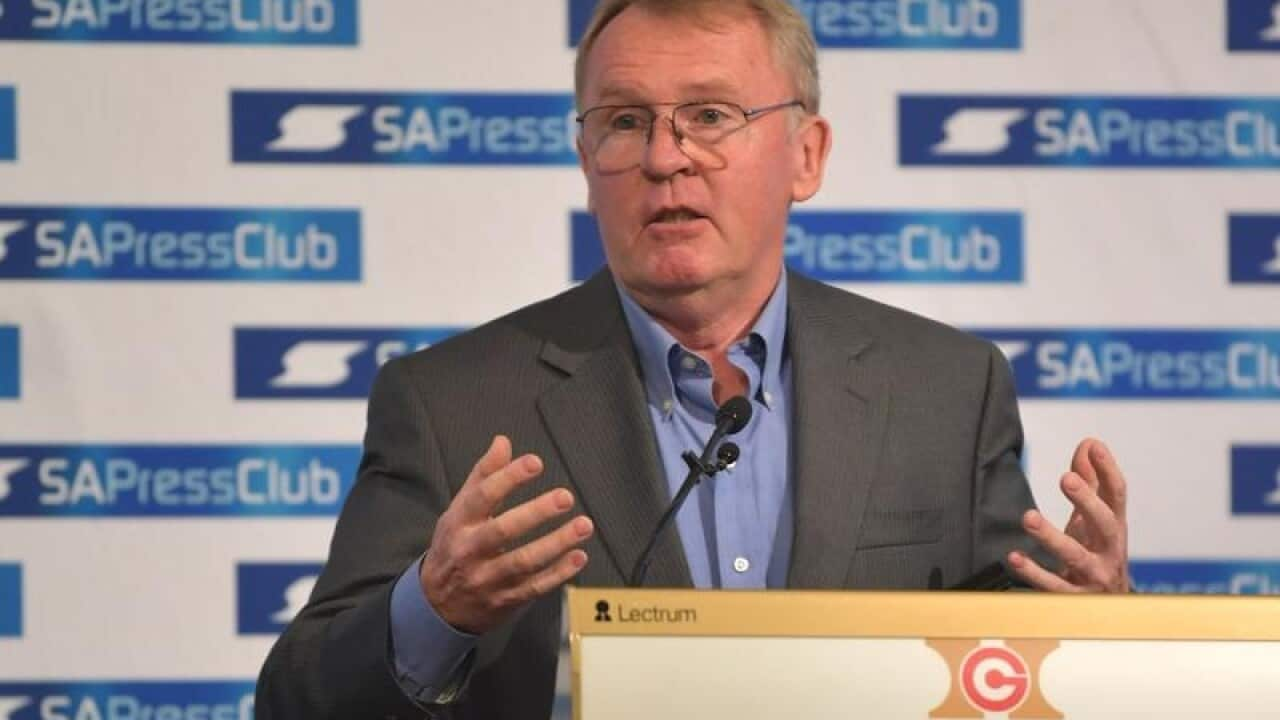Australia's lack of a co-ordinated approach to the multibillion-dollar space industry will come into sharp focus as global leaders in the sector come together in Adelaide.
The latest plans to have humans leave the earth, including the concept of villages on the moon and the colonisation of Mars, will be part of the discussion at the 68th International Astronautical Congress which has attracted about 3500 delegates.
But an overarching theme will be the potential and growing value of the $330 billion space industry and just how to manage and develop current and emerging commercial opportunities.
The heads of the world's leading space agencies will take part in a forum that will ask what should take the lead in such circumstances, business or science.
The debate comes amid growing criticism that there is no Australian space agency to ensure local companies can share in the spoils and also properly contribute in developments that are far more wide reaching and far more immediate than travelling to distant planets.
Without a space industry, and more particularly space data, there would be no smartphones, no GPS in cars, no internet, no movie streaming or the like.
The banking, finance and agriculture sectors would be severely affected as would weather forecasting.
Possibly most significantly, the defence force would be critically impacted with the loss of communications and intelligence.
The Australian space sector already has an annual revenue of more than $3 billion and employs up to 11,500 people.
But it captures just 0.8 per cent of the global space economy.
A commitment to establish a national space agency could help grow that five-fold to around four per cent in 20 years, according to the Space Industry Association of Australia (SIAA)
The federal government has launched a review of the nation's space capabilities, and there's speculation the government will make an announcement to set up an agency at this week's congress.
Industry Minister Arthur Sinodinos said recently it was hoped the review would also lead to new businesses and new jobs by building on the country's existing strengths and finding new areas where it could be world-beating.
But he said it was also important to consider the best way to bring the policy together.
"Is it through a space agency, a national space office, and what does that mean in practice?" he said.
The South Australian government has no doubts and is leading the charge for a space agency, even threatening to go it alone or with the co-operation of the ACT and the Northern Territory.
In the past week the state government also announced the establishment of the nation's first dedicated centre to grow the local space economy.
"Many people think space is about astronauts and rockets," Premier Jay Weatherill said, echoing the thoughts of many in the industry.
"It's so much more than that, it has become part of our everyday lives from our daily weather forecasts to using our mobile phones."
"As an industry, space is growing at more than three times the world annual GDP.
"The potential is enormous and opportunities abundant."
In a recent white paper the SIAA described a national space program, to be implemented by an internationally-recognised space agency, as critical in any national strategy for the transition of the Australian economy.
"It is impossible to imagine a prosperous high-tech future for Australia that does not include a government plan for the accelerated development of our space industry," the association said.
And if that's not enough, Australia's only astronaut Andy Thomas is also on board.
He said the idea of a national agency was a "no-brainer", and only partisan politics was getting in the way.
"It is time to make a space agency here in Australia which can decide national policy, strategies and help develop the infrastructure for space," Mr Thomas said.
"Because space is the modern form of infrastructure. It is as important to this country as railways were in the early development."









